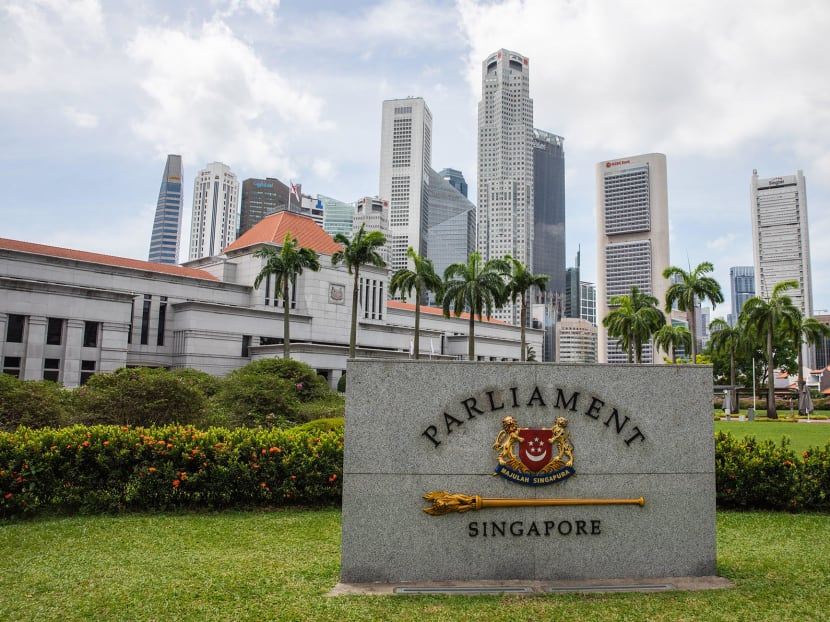Budget 2022: A cheat sheet
SINGAPORE — With Singapore looking to emerge from the Covid-19 pandemic and inflation set to be a key challenge this year, Finance Minister Lawrence Wong on Friday (Feb 18) projects that the Government will spend about S$109 billion in the coming fiscal year, with the aim to “secure the livelihoods of Singaporeans”, among other needs.
SINGAPORE — With Singapore looking to emerge from the Covid-19 pandemic and inflation set to be a key challenge this year, Finance Minister Lawrence Wong on Friday (Feb 18) projects that the Government will spend about S$109 billion in the coming fiscal year, with the aim to “secure the livelihoods of Singaporeans”, among other needs.
Delivering his maiden Budget speech since he took over as finance minister in April last year, Mr Wong said that the Government expects its overall fiscal position following this year’s Budget to remain in deficit by about S$3 billion.
He added that the Government will make a further drawdown of S$6 billion from past reserves to fund the country’s future Covid-19 public health measures.
In a speech lasting about two hours, Mr Wong stressed that Singapore must strengthen its social compact and the country’s “system of collective risk-sharing”.
Writing on Facebook after Mr Wong delivered his speech, Prime Minister Lee Hsien Loong said that Budget 2022 will “lay the basis for sound and sustainable government finances, post pandemic and beyond”.
“We are building a greener and more sustainable city, transforming our economy to create good jobs for Singaporeans, expanding our healthcare system for an ageing society, and strengthening social programmes so that no one is left behind,” said Mr Lee.
“The Government needs reliable and adequate revenues to realise these long-term goals. We are making these moves now, to secure the future for generations to come.”
Here is all you need to know about Budget 2022:
SUPPORTING HOUSEHOLDS
Goods and Services Tax (GST) hike: The first increase of GST will take place on Jan 1, 2023, from 7 per cent to 8 per cent. The second increase will be on Jan 1, 2024, from 8 per cent to 9 per cent. Mr Wong said that lower-income groups will continue to be supported. GST will continue to be absorbed for publicly subsidised healthcare and education. The Government will also foot additional GST payable on Service and Conservancy Charges (S&CC) through an extra funding of S$15 million per year channelled to the town councils. As part of an injection to the Assurance Package, S$200 worth of Community Development Council (CDC) Vouchers will be disbursed to all Singaporean households in 2023 and 2024.
Doubling of regular GST Voucher - U-Save rebates in 2022: For the remaining three quarters of this year, eligible HDB households will receive rebates for their utilities bill that are double the regular amounts. This means that one- and two-room HDB households can receive an extra S$285 in utilities rebates this year, while those living in larger flats will receive less.
HELPING INDIVIDUALS
Government to top-up S$640 million to Assurance Package to cushion GST impact: Now worth S$6.6 billion, the package will see all Singaporeans aged 21 and above receive cash payouts of up to S$1,600, which will be distributed over the next five years. Cash bonuses will also be given to eligible seniors aged 55 and above while eligible HDB households will receive more U-Save rebate vouchers from January 2023 to 2026, on top of the rebates they now get under the GST Voucher scheme. At the same time, some two million Singaporeans will receive a top-up of S$150 annually to their Central Provident Fund MediSave accounts from 2023 to 2025.
LENDING A HAND TO WORKERS
Younger workers to be eligible for payouts under enhancements to the Workfare Income Supplement (WIS) scheme: Mr Wong said that the move will help workers aged between 30 and 34 to save for their housing and retirement earlier in their careers.
CPF basic retirement amount to be raised: The CPF basic retirement sum will be raised by 3.5 per cent per year for those turning 55 from 2023 to 2027. The Government will also raise the contribution rates for senior workers between 1.5 and 2 percentage points in 2023.
Increased salaries for lower-wage workers: The Government will co-fund the wage increases of lower-wage workers between 2022 and 2026. For those earning up to S$2,500, the Government will co-fund 50 per cent of the wage increments for the first two years. This will be reduced to 30 per cent in 2024 and 2025, and to 15 per cent in 2026.
Investments in digital capabilities: Mr Wong said that an extra S$200 million will be set aside in the next few years to enhance schemes that build the digital capabilities of workers and businesses. These include schemes offered by various agencies such as Advanced Digital Solutions, Grow Digital and TechSkills Accelerator.
“Special attention” to mid-career workers: Company attachments for mature mid-career workers will be made a permanent feature through the SGUnited Mid-Career Pathways Programme, said Mr Wong. He added that there will also be a new SkillsFuture Career Transition Programme to provide quality, industry-orientated training courses for jobseekers.
LIFTING BUSINESSES
Small Business Recovery Grant: The new grant, which aims to help businesses with their cashflow concerns, will provide one-off cash support for small- and medium-sized enterprises most affected by Covid-19 restrictions last year. Eligible firms will receive S$1,000 for each local employee, up to a cap of S$10,000 per firm.
Several financing schemes to help firms will be extended: These include the Temporary Bridging Loan Programme, Enterprise Financing Schemes as well as the Aviation Support Package. Mr Wong said that the targeted support for the aviation sector will include measures to ensure public health and safety at the airport.
FOREIGN WORKER POLICY REVISIONS
Employment Pass: The minimum qualifying salary for employment pass holders will be raised to S$5,000, up from S$4,500, while those in the financial services sectors will be increased to S$5,500, up from S$5,000. The changes will begin for new applications in September this year while renewal applications will start from September next year.
S-Pass: The minimum qualifying salary will be raised to S$3,000, up from S$2,500, while that of those in the financial services sector will be increased to S$3,500.
There will also be a lower dependency ratio ceiling for work permit holders in the construction and process sectors. It will be lowered from 1:7 to 1:5 from Jan 1, 2024. The current man-year entitlement framework will be replaced with a new levy framework.
TAXATION RATES
Income tax: The portion of chargeable income in excess of S$320,000 is taxed at 22 per cent currently. From the Year of Assessment 2024, the top marginal personal income tax will be raised. The portion of chargeable income in excess of S$500,000 up to S$1 million will be taxed at 23 per cent and those in excess of S$1 million will be taxed at 24 per cent. The portion of chargeable income in excess of S$320,000 up to S$500,000 will continue to be taxed at 22 per cent.
Property tax: It will be increased in two steps from next year. For owner-occupied residential properties, the property tax for the portion of annual value in excess of S$30,000 will be increased from the current range of between 4 and 16 per cent to between 6 and 32 per cent. For non-owner occupied residential properties, including investment properties, the current tax rates that range between 10 and 20 per cent will be increased to 12 and 36 per cent.
Luxury cars: There will be a new tier for the additional registration fee at a rate of 220 per cent for the portion of open market value in excess of S$80,000. The new rates will apply to all cars registered with certificate of entitlement (COE) obtained from the second COE bidding round this month.
FIGHTING CLIMATE CHANGE
Government aims to achieve net zero emission by around the mid-century: Singapore’s carbon tax will be raised to S$25 per tonne of greenhouse gas emissions in 2024, up from S$5 per tonne at present. This will lead to an increase of about S$4 per month in utility bills for an average household living in a four-room Housing and Development Board flat. The carbon tax will be further increased progressively to S$45 per tonne in 2026 and 2027, with a view to reach S$50 to S$80 per tonne by 2030.









